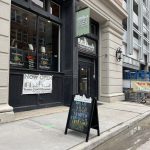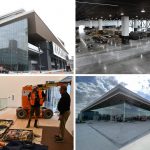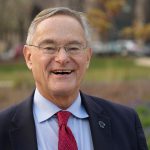“The Invisible Men,” at the LGBT Film/Video Festival
Documentary "The Invisible Men" tells the story of three gay Palestinians who are forced to live lives of secrecy. The film screens Sunday at the Union Theatre.

Film still from Yariv Mozer’s documentary, “The Invisible Men,” screening Sunday at the Milwaukee LGBT Film/Video Festival.
One of the most unique things about gayness is that it knows no bounds. People of any race, religion, and nationality can be gay. Yariv Mozer knows this, and it makes his documentary, “The Invisible Men,” all the more poignant. Screening for free on Sunday at 11 a.m. as part of the Milwaukee LGBT Film/Video Festival, The Invisible Men tells the story of three gay Palestinians who are forced to live lives of secrecy, regularly oscillating between living illegally in Tel Aviv and being deported back to Palestine where life is dangerous for LGBT people.
Mozer’s subjects live according to this rhythm for years on end. Ultimately, each man attains asylum in another country as a refugee. Invisible Men follows their journey from precarious citizenship to a safer life somewhere abroad.
Each subject lives in constant fear of his family or the forces of the state.
32-year-old Louie is routinely deported to Palestine only to sneak back into Israel and work odd jobs to survive. He was maliciously outed by a friend back home. As a form of punishment, his family held him down while his father cut his face with a knife. Louie was able to escape and has lived the last decade in fear that he will eventually see his family again.
Abdu is a 24-year-old gay Palestinian who, at the beginning of the documentary, is due to leave for asylum in one week. He helps convince Louie to do the same. Abdu was captured, beaten and tortured by the Palestinian Police because of his sexuality. The Palestinian Authority assumed that his homosexuality meant he was an Israeli spy.
Faris is 23 years old. He was disowned by his family and kicked out of his parents’ house. Since then he has been in hiding and on the run from both the police and his father who personally vowed to find and kill him.
These men are oppressed, terrified even, but refuse to be compliant victims. Their willingness just to be filmed, let alone tell their stories, speaks volumes about their courage and resilience.
Despite the complete lack of LGBT-specific rights in Palestine, Louie, Abdu and Faris still pursue relationships and socialize with other gay Arabs in Israel. The film follows them at gay pride in Jerusalem and at a monthly clandestine party for gay Arabs in Tel Aviv, a party that changes locations each time.
As Louie and Abdu wait outside the party, a man riding in a taxi inquires about the party’s secret location. When the passenger realizes he’s arrived, he exits the vehicle, brazenly disrobes to reveal his party-ready denim short-shorts, exultantly tosses his clothes into the street, and prances away.
Outside the party, revelers kiss and get handsy while moving in and out of the shadows in a way that is appropriately emblematic of how these men live and love. Drag queens sashay and boys skip arm-in-arm down the street, existing in an insular bubble for this one night once a month.
Thankfully, Mozer lets Louie, Abdu, and Faris tell their own stories. There are no flashbacks, no interviews of friends or relatives. The documentary simply follows its subjects, at times even allowing them take the camera into their own hands. This is their story, and Mozer knows it.
The format is extremely effective. Mozer captures unexpectedly wonderful moments from the seemingly banal: while surfing the net, Abdu shows the camera all the gay Palestinians he knows (or would like to know) on a Middle Eastern social networking site. We see a bevy of gay male online profiles, but, noticeably, not a single one contains a face picture, just a lot of floating torsos. Abdu grins and says, “Iran has really hot guys.”
At Jerusalem Pride, Abdu declares, “If gays ran the Israeli and Palestinian governments, all the problems would be solved. Because they don’t care if you’re Muslim or Christian or Jewish. Or Palestinian or Israeli or American.”
“Gay” becomes a meeting point, an identity that lets people come together and figure out how to solve problems that effect not just the LGBT community. That’s exactly what Mozer is doing with this documentary, and he succeeds.
Movies
-
Milwaukee Film Festival Returns in April
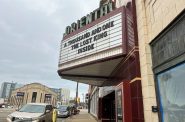 Mar 27th, 2024 by Sophie Bolich
Mar 27th, 2024 by Sophie Bolich
-
Nina Simone’s Summer of Soul
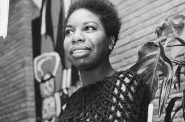 Nov 29th, 2022 by John Sieger
Nov 29th, 2022 by John Sieger
-
The Surprise Pick for Best Picture
 Mar 22nd, 2022 by Dominique Paul Noth
Mar 22nd, 2022 by Dominique Paul Noth






